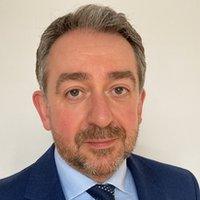My father Russell Causley killed mum in 1985 - he still won't say where she is
- Published
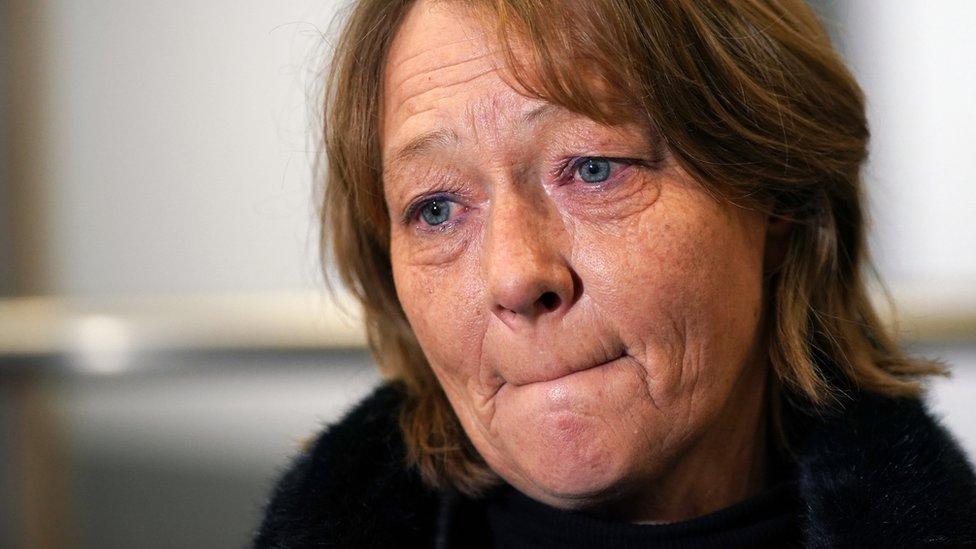
Sam Gillingham says the fact she has no death certificate means her mother "doesn't exist any more"
For 38 years, Sam Gillingham has lived with a question tearing at her soul: how did her father kill her mother in 1985 - and why won't he say what he did with the body?
Today, she is resigned to Russell Causley leaving jail - after a Parole Board hearing concluded that the prisoner serving a life sentence for the murder of Carole Packman could be safely managed in the community.
"I don't have an inquest," says Sam. "I don't have a death certificate for my mother. She literally doesn't exist any more. And I don't think that is acceptable."
Over the years, Sam has mentally prepared for this moment. But despite losing the war over her father's release, she at least won one battle: last December she got to hear him speak about his terrible crime - as he was forced to account for himself in the UK's first public parole hearing.
And it's what she heard that day that has left her asking whether the criminal justice system really considers the needs of victims who have waited years for answers and got none at all.
"It was the first time that I've actually heard my father speak [since he was jailed]," says Sam. "I was quite surprised by how much that he did, considering that he knew we were watching and listening. But I'm still no further forward."
She heard her father speak thanks to an important change in the law last year. When an offender is convicted of murder, their mandatory life sentence comes with a minimum term set by the trial judge.
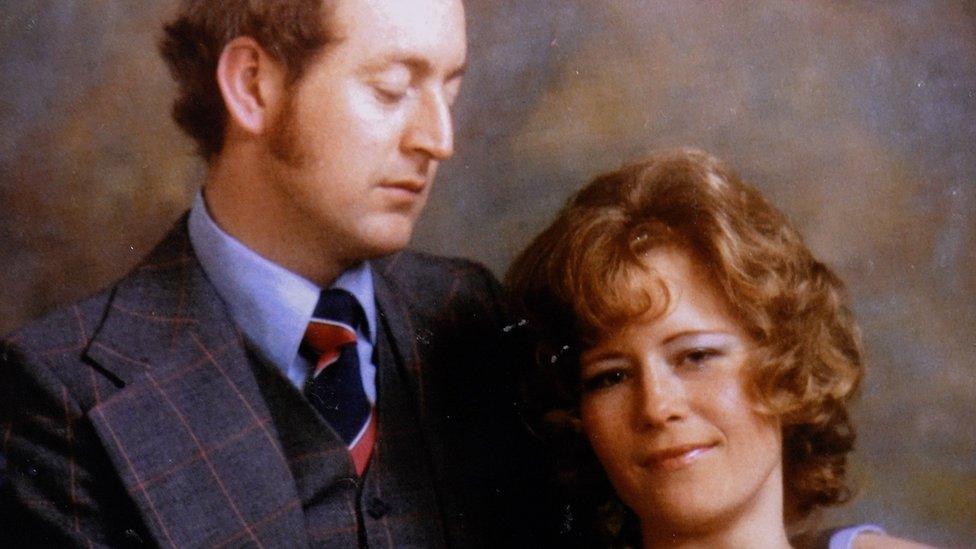
Russell Causley and Carole Packman
After those years have been served, the offender can apply to the parole board to be released on licence into the community. The Parole Board's duty is to decide whether the offender presents a danger to others. If the risks are low, the prisoner is released on a life licence.
Until now, how the Parole Board panel takes its decisions has been shrouded in secrecy. By an accident of timing, Causley's seventh application to leave prison was scheduled shortly after the new rules came into force - and Sam's son Neil lobbied hard for it to be the first hearing to take place in public.
The last time Sam had heard Causley's voice was back in the mid-90s, before he was finally charged after years of delays.
"Unexpectedly he called me," Sam recalls. "And his opening statement to me was, 'Well, Sam, the police have just left. And they still haven't charged me with the murder of your mother'."
When she finally heard him speak last December, it was on a video link from Lewes Prison in East Sussex. Causley began to tell a story of Carole's 1985 murder in their luxurious family home in Bournemouth.
The story he told was, by Sam's estimate, at least the third contradictory account.
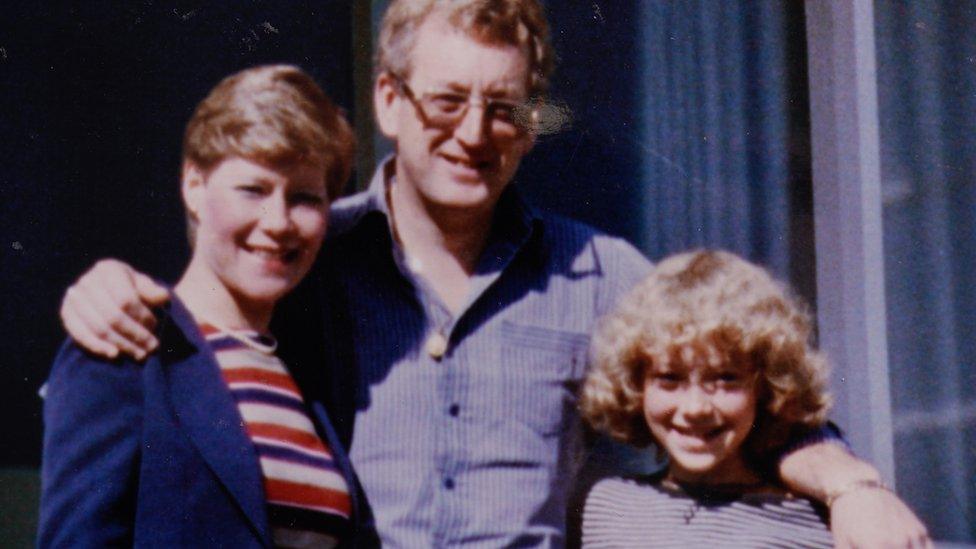
Sam's family wanted for nothing - but her father was controlling
In one previous version, he told a fellow inmate that he had gassed his wife. In a rambling confession of sorts that he sent to police in 2015, Causley said he had hit and strangled Carole. Last December, he changed the story again.
This time he said his lover, who lived in the family home and whose surname he later took, had killed Carole. He had burned the body and disposed of what was left in the hedgerows of Hampshire.
Police long ago ruled out the lover - and so Russell Causley is part of a small group of particularly cruel killers who has done nothing to ease the pain of those left behind.
"The reason why it was important to get a public parole hearing was to hear from the offender himself, to get an understanding of what happens behind those closed doors," says Sam.
And as she listened over the hours that followed, she concluded her father was still trying to manipulate.
"If anything, [what Causley said] opened up more questions for me. That was the most frustrating thing that I found - to listen... and not have somebody from my side there to actually challenge."
'Coercive and controlling'
During part of the hearing, Causley was asked about how he had treated his then-teenage daughter. He admitted being a disciplinarian - but Sam says his account hugely minimised the abuse he meted out.
"There is this ongoing, continual, coercive and controlling behaviour behind my father's ultimate endgame," she says.
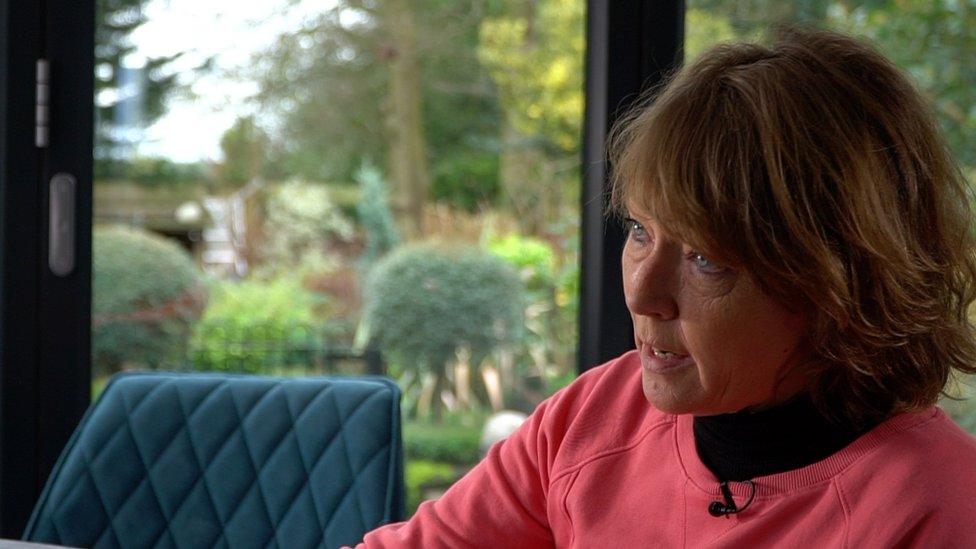
Sam Gillingham
"I find it concerning that despite the length of time that the [prison system] have had my father under their care, he still hasn't completed any rehabilitation programmes. He does not see himself as a domestic abuser. He will always deflect from his own responsibility for the seriousness of what he has done. He minimises it."
Sam is rare among many survivors of serious crime and abuse. She's found a voice to speak up for herself - and people like her - and she's now calling for the government to stop and think whether the newly-transparent Parole Board can deliver anything useful for victims.
"I think that there should have been somebody who was actually representing my interests, my mother's interests, in that public parole hearing. They haven't actually completely taken into account what it would feel like on a victim side to listen to what I listen to."
The government's view is that the openness is a big step forward in helping the public to understand how release decisions are taken by the former judges, psychologists and members from other walks of life who sit on the panels.
Rights for victims
Dame Vera Baird KC, the former Victims' Commissioner for England and Wales, says the UK is still on a journey to making sure that they are heard.
"The more information that the victim wants to have [about how an offender is managed], and can get, the easier it will be to cope with the fact that in the end, this person is almost certainly going to be released," says Dame Vera.
"Victims must go into a parole hearing with their eyes open as to what it is. It isn't about the offence, it's about that person. You must have good quality victim support specialist, counselling, to be with you before and after to see you through it.
"I don't think that any of that is available now."
Causley will now spend his final years on the outside unless he breaks the terms of his licence and is recalled to prison.
In a somewhat hard twist of fate for Sam, a high-profile law to make it harder for killers to leave jail if they have not revealed what they did to their victims' remains doesn't apply to Causley. That's because he had been given parole in 2020, before the new law came into force, but then recalled to prison for breaking his release conditions.
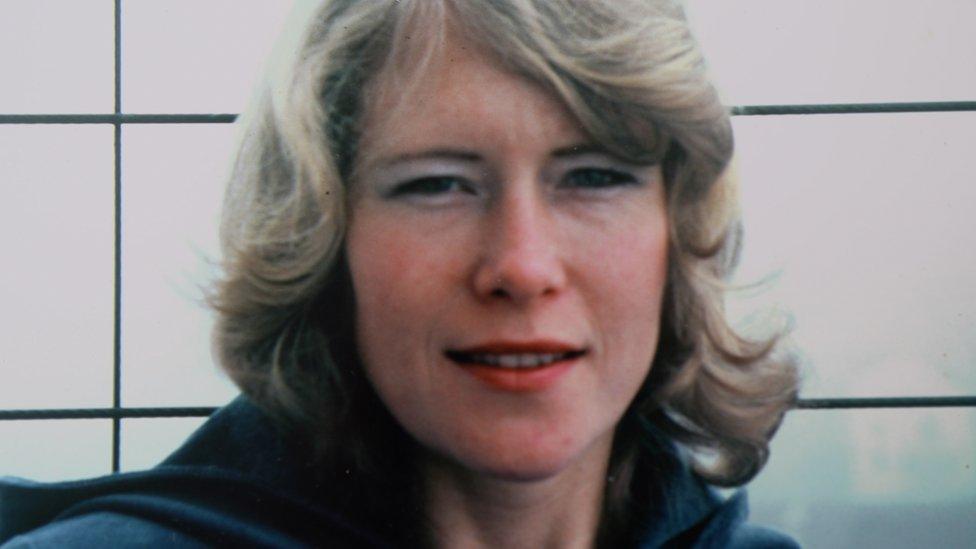
Carole Packman
And so Sam is pinning her hopes on one last route to get answers. She wants the Ministry of Justice's specialists in restorative justice to convince her father to meet her.
Restorative justice is a complex and voluntary process in which offender and victim meet with the support of specialist counsellors.
Dame Vera says that the therapeutic meetings can help both the victim and the offender. But it all depends on the circumstances - and it is not a quick fix.
MoJ officials have discussed a potential restorative justice process with Sam - but she's heard nothing for months so she does not know whether the idea has got as far as her father's prison cell. What would Sam ask her father?
"Why? Why? Why are you continuing to just play these games," she says. "I do not think that he is safe to be released. Russell Causley is aware of what Mr Causley wants, and he is manipulative and controlling."
Should he ever be released?
"No. I think their judgement is wrong. I still don't feel that my mother has had justice. They're determined to release him. And that's a difficult pill to swallow."
